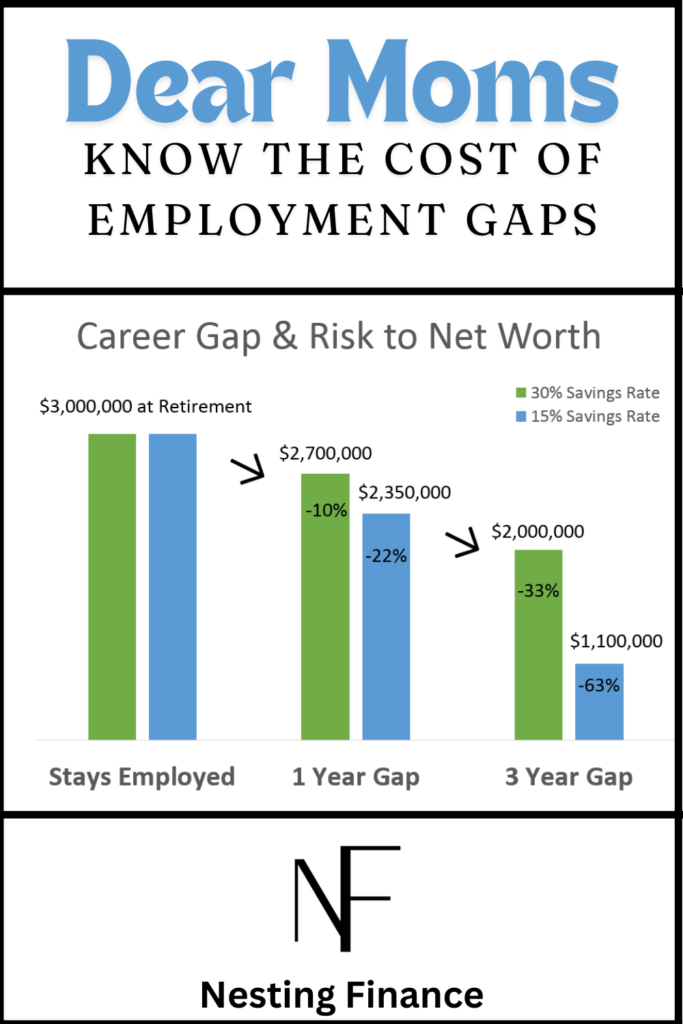- Financial Considerations: The Short and Long-Term Impacts
- Emotional Considerations: Finding Fulfillment as a SAHM
- The Impact on Career: Will You Be Able to Return to Work?
- Debunking the Myths About Stay at Home Moms (SAHMs)
- Developing Independence in Children: The Stay at Home Mom Dilemma
- Financial Independence During Divorce: A Critical Consideration
- The Educational and Emotional Benefits for Children
- Practical Financial Tips for SAHMs
- Frequently Asked Questions: Should I be a Stay at Home Mom ?
The question should I be a stay at home mom? is one of the most personal and important decisions you can make for your family. Whether you’re considering becoming a stay at home mom (SAHM) or balancing the idea of continuing to work, there are financial, emotional, and social factors to consider. Every family has different needs, and what works for one might not work for another. This guide will walk you through the benefits, challenges, and key factors to weigh when deciding if staying home is the right choice for you.
Financial Considerations: The Short and Long-Term Impacts
One of the most pressing concerns when asking should I be a stay at home mom? is the financial trade-off. Becoming a SAHM can save money on childcare and other work-related expenses, but the long-term financial effects can be significant.
Immediate Cost Savings
- Daycare Costs: If you’re a SAHM, you eliminate the often-high costs of daycare, which can sometimes rival the salary of one parent.
- Work-Related Expenses: SAHMs can also benefit from saving on transportation, work clothes, and meals outside the home.
The Long-Term Financial Penalty
However, staying out of the workforce as a SAHM comes with its own long-term financial risks:
- Loss of Income: When Nesting Finance investigated the financial costs of leaving the workforce, we learned that stepping out of the workforce for a year can reduce your net worth by 22% upon retirement, and three years out can lead to a 63% reduction due to the missed opportunity to save and invest during your prime earning years
- Retirement Impact: Three years out of the workforce can mean the difference between a $1.1 million retirement nest egg vs. a $3 million nest egg. Putting numbers to the loss of income equates to tMissing several years of retirement contributions can add up over time. For example, if you’re aiming for a retirement fund of $3 million, taking a few years off as a SAHM could reduce that to around $1.1 million.

Actionable Tip: To offset some of these losses, consider side gigs or part-time work to stay financially engaged while being a SAHM. This will help maintain your savings and potentially contribute to retirement plans.
Emotional Considerations: Finding Fulfillment as a SAHM
Deciding should I be a stay at home mom? also has a significant emotional component. Many SAHMs experience immense fulfillment in raising their children and being present for every milestone, but staying at home can also lead to feelings of isolation and loss of identity.
The Emotional Rewards of Being a SAHM
- Time with Your Children: One of the greatest joys of being a SAHM is having the opportunity to be there for your child’s first words, first steps, and other key moments.
- Control Over Your Schedule: SAHMs can tailor their schedules around their children’s needs, making it easier to accommodate playdates, doctor’s appointments, or spontaneous family activities.
The Challenges of Loneliness and Guilt
- Social Isolation: Many SAHMs feel disconnected from the adult world, which can lead to loneliness or even depression. Without workplace interactions, it’s easy to feel cut off.
- Mom Guilt: On the flip side, some stay at home moms may struggle with guilt, feeling they should be contributing financially or advancing their careers, even as a SAHM.
Actionable Tip: Combat isolation by connecting with other SAHMs through local support groups, online communities, or scheduling regular adult interactions. It’s also important to let go of perfectionism—find peace in the daily wins and the fact that you are doing what’s best for your family.
The Impact on Career: Will You Be Able to Return to Work?
One critical aspect to consider when deciding should I be a stay at home mom? is how time away from the workforce could affect your career. Employment gaps can make it harder to re-enter the workforce, but there are ways to maintain your skills and prepare for a future return, even while being a SAHM.
Skill Atrophy and Employment Gaps
- Loss of Skills: Staying home as a SAHM for several years could lead to your professional skills becoming outdated, especially in fast-evolving industries.
- Job Search Challenges: Returning to the workforce after a gap may be difficult, as some employers might view the break in employment negatively.
Maintaining Career Engagement
Despite these challenges, SAHMs can take proactive steps to keep their careers intact:
- Online Learning: Consider taking online courses, earning certifications, or freelancing to stay updated on industry trends while being a SAHM.
- Networking: Keep in touch with former colleagues and attend industry events when possible to remain visible in your field.
Actionable Tip: Set up a timeline for your eventual return to work and create a plan for skill-building while you’re at home. That way, you’ll be prepared when the time comes to re-enter the workforce as a former SAHM.
Debunking the Myths About Stay at Home Moms (SAHMs)
There are many misconceptions about stay at home moms (SAHMs) that can unfairly stigmatize the role. It’s important to debunk these myths and present the reality of being a SAHM.
- Myth 1: SAHMs have plenty of free time
The truth is that SAHMs are constantly busy. From caring for the kids to managing the household, their days are filled with tasks that require energy and attention. - Myth 2: SAHMs don’t contribute financially
While they may not bring home a paycheck, SAHMs contribute by saving on daycare costs, managing household budgets, and even finding ways to save money on groceries or home expenses.
By debunking these myths, we help recognize the valuable work SAHMs contribute to their families.
Developing Independence in Children: The Stay at Home Mom Dilemma
One lesser-discussed challenge for SAHMs is fostering independence in their children. With a parent always available, children may become overly reliant on their moms.
Encouraging Self-Sufficiency
It’s important for SAHMs to instill a sense of responsibility and self-reliance in their children.
- Chores and Responsibilities: Assigning age-appropriate chores helps children learn responsibility and develop independence. Small tasks, like tidying their room or helping with dishes, can build a sense of accomplishment.
- Problem-Solving: Encourage children to solve their own problems before coming to you for help. This fosters critical thinking and resilience.
Actionable Tip: Create a daily routine that includes independent activities for your children, which will give you time to focus on your own tasks while helping them grow.
Financial Independence During Divorce: A Critical Consideration
One aspect many moms overlook when asking should I be a stay at home mom? is the financial vulnerability that can occur in the event of a divorce. Divorce can leave SAHMs in a precarious financial situation due to gaps in employment and the lack of personal income.
The Financial Risks of Divorce
- Limited Income: Without a personal income stream, SAHMs may struggle to provide for themselves and their children post-divorce. This can negatively impact their ability to secure top legal representation and afford housing, such as rent deposits.
- Finance and Custody Battles: Employment gaps and skill atrophy could affect custody decisions during divorce proceedings, as judges might consider financial stability when determining who is best suited to care for the child.
Preparing for the Worst
Even if you decide to stay at home, it’s important to safeguard your financial future.
- Maintain Joint Access to Finances: Ensure that your name is on all joint accounts and that you have full knowledge of your family’s financial situation as a SAHM.
- Part-Time Work or Freelancing: Consider maintaining some form of employment or income-generating activities, even if it’s just part-time work or freelance projects.
Actionable Tip: Stay informed about your family’s finances and create an emergency fund to protect yourself in the event of a divorce or other financial hardships as a SAHM.
The Educational and Emotional Benefits for Children
Research presents a nuanced picture when it comes to the educational and emotional outcomes of children in different household structures. While children of SAHMs often experience emotional and academic advantages, other research suggests that children from wealthier, dual-income households tend to perform better academically. So, how can both be true?
The key is quality time. Wealthier households, where both parents work, often have access to more resources, including educational tools, extracurricular activities, and tutoring, which can help boost a child’s academic performance. These parents, despite their busy schedules, can dedicate meaningful, high-quality time to their children, similar to the attention children receive in SAHM settings.
In both cases, the common thread is that being present—whether physically or through structured, intentional time—has a profound, positive impact on children’s development. If you’re still asking, should I be a stay at home mom?, consider how your presence, regardless of the format, can positively shape your child’s academic and emotional well-being.
Enhanced Academic Performance
- One-on-One Attention: SAHMs often provide personalized attention that can help children excel academically. However, children in wealthier households with both parents working may also receive personalized attention through structured activities, tutoring, or focused parent-child time.
Emotional Stability
- Reduced Stress: Stay at home parents can be present to offer emotional support during the day, which reduces stress and behavioral problems, especially in boys who benefit from lower levels of cortisol. Wealthier households may also mitigate stress through financial stability, allowing for emotional resources like therapy, organized sports, or enrichment activities that build emotional resilience.
Actionable Tip: Whether you’re a SAHM or a working parent, focusing on quality interactions—such as reading together, engaging in open conversations, or taking time for one-on-one activities—can have a significant, positive impact on your child’s emotional and academic development.
Practical Financial Tips for SAHMs
While being a stay at home mom often means living on a single income, there are several ways SAHMs can manage household finances effectively to stay financially secure.
Budgeting for a Single-Income Household
- Track Every Expense: Create a detailed monthly budget that tracks everything, from groceries to entertainment. Knowing where every dollar goes can help SAHMs cut back on unnecessary expenses.
- Cut Back on Non-Essentials: As a SAHM, you’ll need to make some sacrifices. Consider cooking at home more frequently, reducing entertainment expenses, and shopping for second-hand clothing.
- Use Cash-Back Apps: Apps that offer cash-back on purchases can help you save a little extra every month. This might seem small, but over the course of a year, these savings add up.
Building an Emergency Fund
Even when living on a single income, it’s important for SAHMs to build an emergency fund that can cover at least three to six months of expenses. This ensures financial security in case of unexpected events, such as medical emergencies, home repairs, or job loss.
Consider Part-Time Work
While you might be staying at home, some SAHMs take on side gigs or part-time work, such as freelance writing, tutoring, or online consulting. This provides a way to contribute financially while still maintaining the flexibility to care for your children.
Frequently Asked Questions: Should I be a Stay at Home Mom ?
1. Will staying at home affect my career in the long run?
Most likely, yes, staying at home increases the risk of negatively impacting your career, especially compared to staying employed. Time out of the workforce can lead to skill atrophy or make it harder to re-enter certain industries. However, it could also provide a unique opportunity to explore entrepreneurial ideas or side projects that you may not have considered otherwise. While you shouldn’t bank on these opportunities, they show that time away from work can be overcome and even conquered. Nevertheless, the career risk doesn’t go away entirely—staying connected with your network and keeping skills fresh through online courses or freelance work is essential for a smoother return to the workforce.
2. How can I stay financially independent as a stay at home mom?
Maintaining financial independence is crucial. You can stay involved in managing the family’s finances, contribute to savings, and consider part-time work or side gigs. Having joint access to accounts and keeping an emergency fund is essential, especially in the case of divorce or other financial emergencies.
3. Will my children benefit from having me stay at home?
Studies suggest that children of stay-at-home parents often experience emotional and academic benefits. They may have lower stress levels and perform better in school due to the one-on-one attention and emotional support provided at home.
4. How can I prevent isolation as a stay at home mom?
Preventing isolation is key to maintaining mental health. Joining local mom groups, scheduling playdates, or engaging in online communities can help you stay connected with other adults. Prioritize self-care and make time for activities that bring you joy outside of parenting.
5. How do I handle feeling guilty about not working?
Mom guilt is a common challenge. It’s important to remind yourself that being a stay at home mom is a full-time job in itself. Focus on the emotional and developmental benefits you’re providing to your children. Finding peace in your choice is critical, whether you’re staying at home or working.
6. Can I try being a stay at home mom temporarily?
Yes, many moms decide to try staying home temporarily, especially during their child’s early months. If finances allow, you can reassess your decision after a year, depending on how it impacts your family’s well-being and your career.
7. What if I want to return to work but feel I’ve lost my skills?
Returning to work after years at home can be daunting, but it’s not impossible. You can start by taking online courses, volunteering, or freelancing to rebuild your résumé. Networking with former colleagues and using your stay-at-home time to learn new skills can also make the transition smoother.
8. Should I be a stay at home mom if my family needs my income?
If your family relies on your income, staying at home may not be financially feasible without making significant lifestyle adjustments. You might want to consider part-time or remote work options, or carefully budget to see if living on one income is possible.
9. How can I balance self care with raising children full-time?
Self-care is crucial to avoid burnout. Even small actions like taking a daily walk, pursuing a hobby, or scheduling quiet time can make a big difference. If possible, ask your partner or family members for help to ensure you get some time to recharge.
10. Will being a stay at home mom affect my relationship with my partner?
Staying home can impact your relationship, particularly if one partner feels like they are carrying more of the financial burden or if there’s a lack of appreciation for the caregiving role. Open communication is essential, and both partners should be clear about expectations and responsibilities.
Final Thoughts: Should I Be a Stay at Home Mom?
The question should I be a stay at home mom? doesn’t have a one-size-fits-all answer. Every family has its unique challenges and priorities. Deciding to stay at home involves weighing the emotional and financial benefits for your family against the potential long-term impacts on your career and personal well-being.
Whether you choose to stay at home as a SAHM or continue working, the decision should be based on what is best for your family and yourself. If staying home brings you peace and allows you to be fully present during your children’s formative years, it may be the right choice. However, if financial independence and career fulfillment are priorities, then balancing work with parenting might be a better fit.
Ultimately, the key takeaway is that no one can make this decision for you. By carefully considering your financial situation, long-term career goals, emotional well-being, and your children’s needs, you can make the decision with confidence. Most importantly, whatever you choose, remember that it’s the right decision if it aligns with your family’s goals and values.
If you’re still on the fence and want to explore the benefits of being a working mom, check out our article on being a working mom and the benefits that come with it. It might help you find the right balance for your family!
About the Authors: We’re a husband and wife team with over 30 years of experience in finance, investments, and marketing, committed to helping growing families make informed decisions. Think of us as that older sibling who’s been through it before and ready to share our mistakes and successes. Learn more about our journey from insecurity to financial security where we conquered adversity to reach the top 10% of our peers.
Recent Posts
- Micro Wedding: Ditch Stress and Embrace Love
- The Best Way to Build Balance Sheet Wealth
- How to Rediscover Yourself: Empower Your Best Life
- CookUnity Reviews: The Best Meal Service For Families
- Mortgage Recast: The Best Trick to a More Affordable Mortgage
- How to Stop Being a Snowplow Parent and Find Balance


Leave a Reply